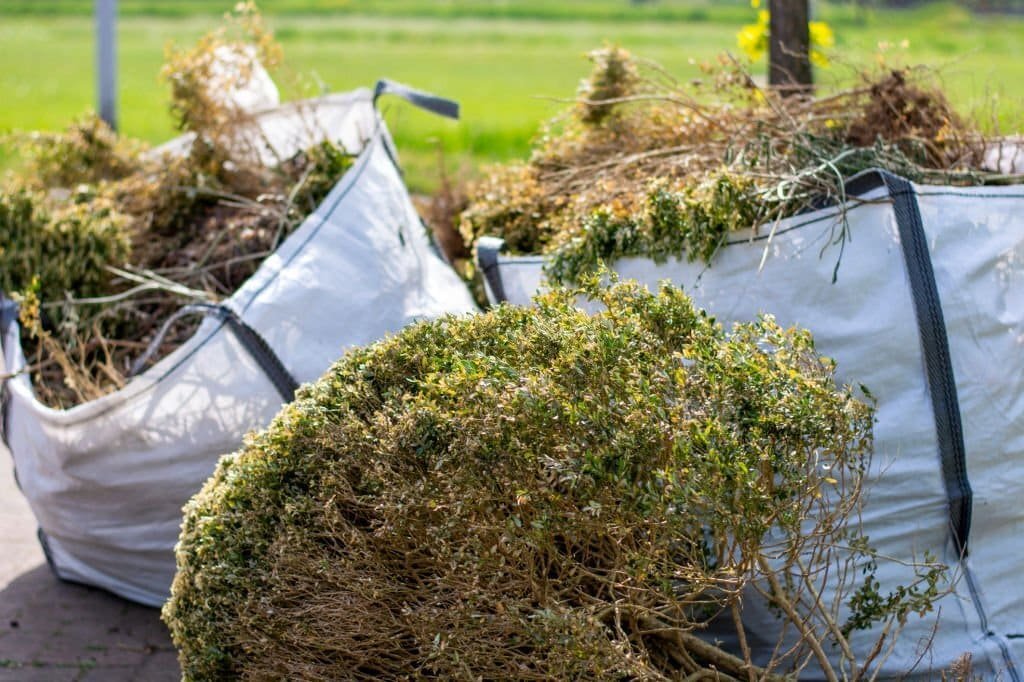How To Dispose Of Yard Waste
Yard waste is a common by-product of lawn and garden maintenance activities and can include materials such as leaves, grass clippings, and branches. Adequate and proper Dispose Of Yard Waste is essential for the health of the environment and local communities. Several methods are available for yard waste disposal, including composting, curbside collection, drop-off centers, and landfill disposal. The choice of technique may depend on local regulations and the availability of resources. Still, it is essential to ensure that yard waste is disposed of to minimize its environmental impact. This guide provides an overview of how to dispose of yard waste and highlights the benefits and drawbacks of different disposal methods.

Yard waste is safely and properly disposing of organic materials produced from lawn and garden maintenance activities, such as leaves, grass clippings, and branches. Disposing of yard waste may vary depending on local regulations and the availability of resources, but standard methods include composting, curbside collection, drop-off centers, and landfill disposal. The goal of yard waste disposal is to manage the waste environmentally friendly, reduce its impact on the environment, and minimize the amount of waste sent to landfills.
Way To Dispose Of Yard Waste
Yard waste can typically be disposed of through a variety of methods, including:
- Composting: Yard waste can be composted at home, which is an environmentally-friendly and cost-effective way to dispose of it. Composting involves placing yard waste in a compost bin and allowing it to break down naturally over time.
- Curbside Collection: Many cities offer curbside collection of yard waste, which is collected separately from other household waste. Place yard waste in compostable bags or containers and set it on the curb on designated collection days.
- Drop-Off Centers: Some communities have drop-off centers where residents can bring yard waste for proper disposal.
- Landfills: Yard waste can also be taken to a landfill for disposal, although there are more environmentally-friendly options.
Regardless of the method chosen, it is important to follow local regulations and guidelines for disposing of yard waste, which may vary based on location.
How Does Dispose Of Yard Waste Works
The process of disposing of yard waste typically involves the following steps:
- Collection: Yard waste is generated from lawn and garden maintenance activities and is collected in compostable bags or containers.
- Transportation: The collected yard waste is transported to a disposal facility, such as a composting site, curbside collection center, drop-off center, or landfill.
- Processing: Depending on the disposal method chosen, the yard waste may undergo a processing step, such as composting, grinding, or chipping, to reduce its size and facilitate its disposal.
- Disposal: The processed yard waste is disposed of appropriately, incorporated into compost, taken to a landfill, or burned.

It is important to follow local regulations and guidelines for disposing of yard waste, which may vary based on location. Proper yard waste disposal helps minimize its impact on the environment, reduce the amount of waste sent to landfills, and maintain the health and safety of local communities.
Benefits To Dispose of Yard Waste
There are several benefits to disposing of yard waste properly:
- Reduces clutter and improves aesthetics: Disposing of yard waste helps keep your yard clean and tidy, creating a more attractive and welcoming outdoor space.
- Supports healthy soil: Disposing of yard waste properly allows for the decomposition of organic matter, which in turn helps to improve soil health.
- Reduces the risk of disease and pest infestations: Piles of yard waste can attract pests and conditions, and disposing of it properly minimizes this risk.
- Helps the environment: Yard waste that is disposed of properly helps to reduce the amount of waste in landfills and can be used as compost, reducing the need for chemical fertilizers and improving soil health.
- Supports local waste management efforts: Proper yard waste disposal supports local waste management programs and helps ensure that these resources are being used effectively.
Disadvantage Of Not Disposing of Yard Waste
Not disposing of yard waste correctly can lead to several disadvantages, including:
- Health hazards: Yard waste, if not disposed of properly, can attract pests such as rodents, insects, and other animals that can carry diseases.
- Environmental pollution: Yard waste can release methane and other harmful gases that contribute to air pollution.
- Fire hazards: Dry yard waste can be a fire hazard, especially during hot and dry weather conditions.
- Blocked drains and gutters: Yard waste can clog gutters and drains, leading to water damage and potential health hazards.
- Attractive nuisances: Piles of yard waste can be an eyesore and can lower property values.
- Legal liabilities: Improper disposal of yard waste can result in legal penalties and fines, particularly if it contaminates water sources or causes other environmental damage.

HOW TO MANAGE YARD WASTE EXCEPTIONS
Here are some ways to manage exceptions in yard waste management:
- Alternative disposal methods: If the standard methods of yard waste disposal are not feasible, you can consider alternative methods such as vermicomposting, composting with the help of earthworms, or anaerobic composting, which is done in the absence of oxygen.
- Hire a professional: If you have a large amount of yard waste or cannot manage it yourself, consider hiring a professional waste management company to take care of it.
- Community events: Some communities organize community events to manage yard waste, such as community composting days or tree planting events. Consider participating in these events to help manage your yard waste.
- Reuse and Recycling: Instead of disposing of yard waste, consider using it for other purposes, such as creating mulch or compost or using it as firewood.
- Proper storage: If you have to store yard waste temporarily, store it in a place that is out of reach of children and pets and away from flammable materials. Ensure the storage area is well-ventilated to prevent the growth of mold and mildew.
Conclusion:
By following these steps, you can effectively manage yard waste exceptions and reduce the environmental impact of yard waste disposal.







